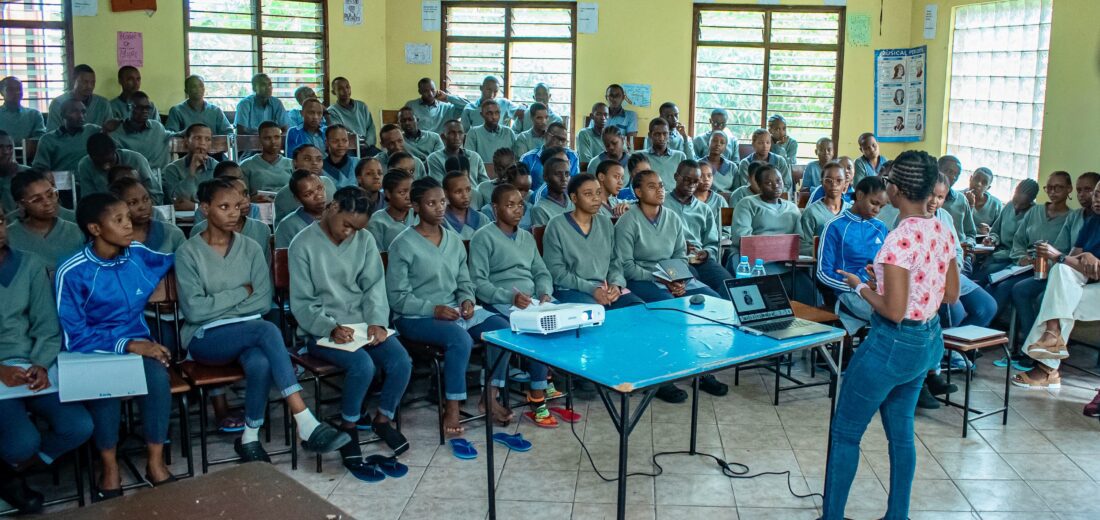
Girls in ICT: Dr. Neema Mduma Leads the Charge in the African Tech Space
Vice Versa Media Ghana join hands with the United Nations Organization to observe the International Girls in ICT Day. Celebrated on the fourth Thursday of April, the essence of this observance day is to stress on the importance of encouraging more girls to pursue a life long standing career in the field of STEM. Showcasing women who are already breaking barriers in the field of technology, is a way to spark interest in the lives of the younger generation.
Farida Bedwei, is an example of a woman who is championing this agenda in Ghana. Diagnosed with Cerebral palsy at a young age, Farida is the definition of going against expectations, as she has remained undeterred in her pursuits. Today, she is a 45-year-old Senior Software engineer and co-founder of a Fin-Tech company in Ghana, Logiciel.
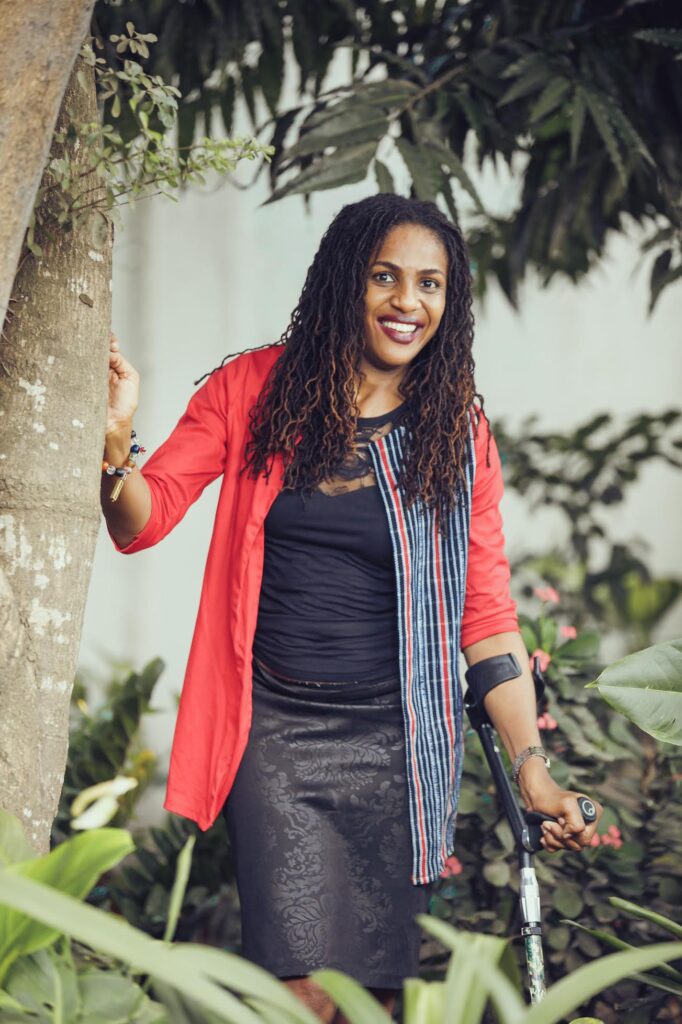
Diagnosed with Cerebral palsy at a young age, Farida Bedwei is the definition of going against expectations. Photo Credits: Mujeres Bacanas.
Gazing across the African Continent, down to Tanzania is Dr. Neema Mduma, who champions this agenda in her country. Centering our discussion to the theme of this year’s International Girls in ICT Day, which is focused on encouraging women to take up leadership position in the tech space, Dr. Neema was more than excited to share her journey and projects she is working on to encourage young women to take up positions in the tech space. She also leaves us with some titbits on how we can all play a role in championing this agenda.

Dr. Neema Mduma champions the Girls in ICT initiative in Tanzania. Photo Credit: NewAfrican.
INTRODUCING DR. NEEMA MDUMA
Born and raised in Tanzania, Dr. Neema Mduma is a 35-year-old senior lecturer at the Nelson Mandela African Institution of Science and Technology (NM-AIST) in Arusha. She is also the founder of the BakiShule initiative, which promotes Science, Technology, Engineering, and Mathematics (STEM) to girls in secondary schools across Tanzania.
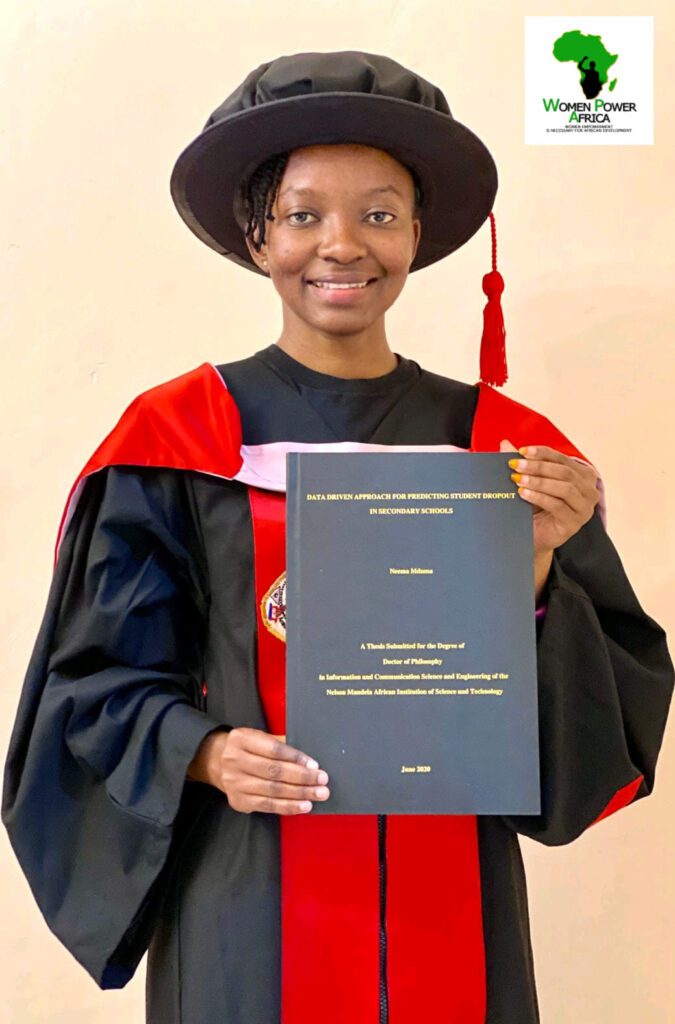
Dr. Neema Mduma graduates from the Nelson Mandela African Institution of Science and Technology. Photo Credit: Women Power Africa
Her passion for science began at a young age, specifically when she was in Primary School. She was intellectually brilliant when it came to subjects like Mathematics hence, she was encouraged by her teachers and parents to pursue an engineering course that will lead her on the path to becoming a Civil Engineer.
In secondary school, Dr. Mduma opted for courses geared towards Physics, Chemistry and Mathematics as they are the basic academic requirements for pursuing a Civil Engineering Course at the University level. After completing Senior High School, Dr. Mduma became aware of the broader potential and impact of technology that is shaping the future of the world. At that, she decided to make a career switch and pursue a career in Computer Science as opposed to pursuing Civil Engineering. “My focus was to harness the power of digital solutions to address real-world challenges, particularly in developing countries and sectors like agriculture, which is crucial for economies like Tanzania.” She stated.
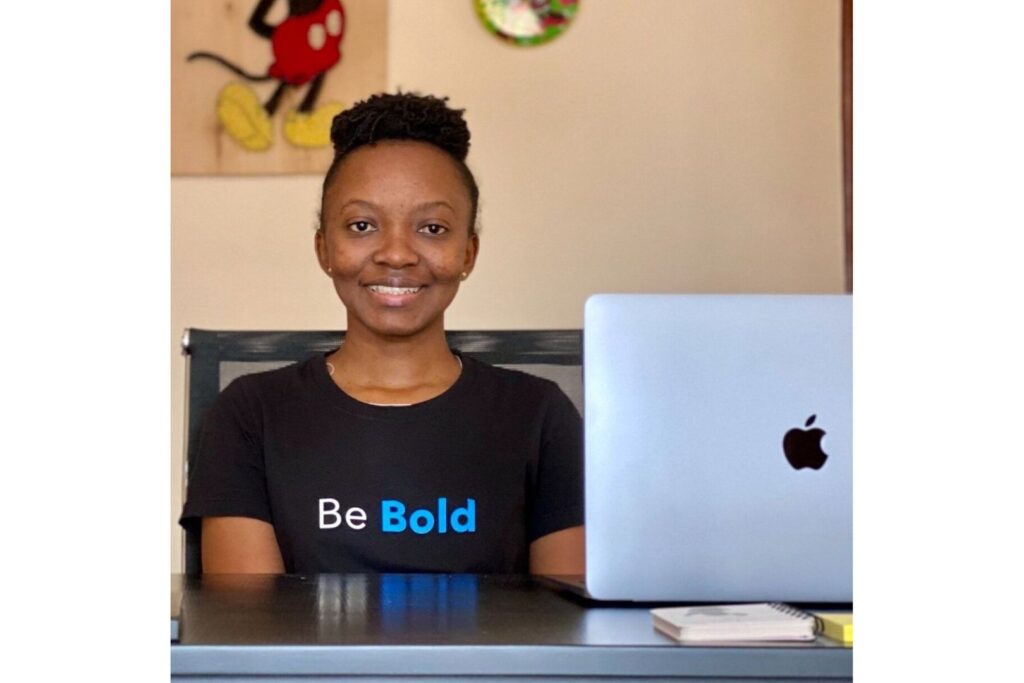
Dr. Mduma is focused on harnessing the power of digital solutions to address real-world challenges. Photo Credit: The Citizen
This career shift set Dr. Neema on a whole new adventure that will lead her to become a beacon in the tech space for young girls to model after.
THE WOMAN IN A MAN’S WORLD
Pursuing a career in Tech did not come easy for Dr. Mduma. “Since this is a platform to encourage girls to enter into this field, I need to let them understand this. The tech space has always been male dominated, and it gets intimidating. During my undergraduate years, I often found myself as the only woman in many of the courses. This disparity sometimes led to feelings of isolation, especially as many of my friends pursued different paths. Moreover, the rapid pace of technological change required me to continuously learn and adapt to remain relevant in my field. This demanded a commitment to work hard and learn the new knowledge and remain adaptable, as computer technology was an evolving field.”
“When I first started lecturing, I discovered that my class was composed entirely of men and many of them were older than me. Not a single woman was admitted to the program. That was daunting”. She recalled.
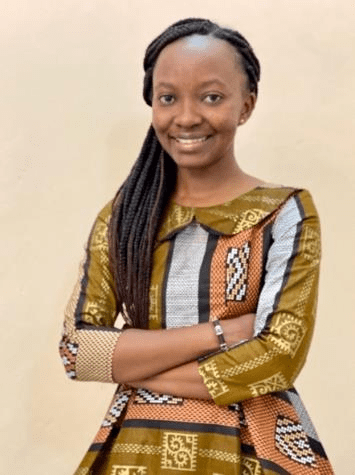
During her undergraduate studies, Dr. Neema was the only woman in many of the computer science courses. Photo Credit: nm-aist.ac.tz
But that did not hinder Dr. Mduma from pursuing her career. She did not stray from her goals. To keep up with the fast-paced advancement of technologies, Dr. Neema looked for opportunities such as research visits, workshops, conferences, and summer schools in countries that were very advanced in Artificial Intelligence (AI) and Machine Learning (ML) such as the United States, Canada etc.
THE BAKISHULE PROJECT
During our interaction, Dr. Neema mentioned a project she is currently working on called BakiShule. “It is Swahili for Stay in School” she described. The idea started during her PhD, which focused on addressing the problem of student dropout in secondary schools. Using the invaluable skills, she obtained from attending seminars, conferences and computer science studies, Dr. Neema developed a machine learning model that will predict students who are at risk of dropping out of school early and suggest appropriate measures for intervention.
The Bakishule Project is a machine learning model that predicts student dropout. Video Credit: Neema Mduma.
“During the data collection stage, I noted several challenges that forces students to drop out of school. I also realized that fewer girls had interest and pursued a career in the field of STEM. This prompted me to think of doing something to help change the situation.” She described.
Dr. Neema’s presentation on the factors that affect early school dropout. Video Credits: Deep Learning IndabaX Uganda
Dr. Neema decided to expand the BakiShule project from a Machine Learning Model to a hands-on Mentorship program where she visits schools, talk to students and encourage them to pursue STEM careers. Through presentations, Dr. Neema exposes the students to emerging fields such as Data Science, Machine Learning, and Artificial Intelligence. “I specifically target these fields because there are fewer girls in the field of computer science and technology. During these visits, I interact with many girls who are curious and eager to know how I managed to become a computer scientist. I believe my story serves as an inspiration to many of them and helps ignite a passion for science, encouraging them to become future scientists.” She described.
So far, Dr. Neema has succeeded in reaching 5,000 students across different schools, but the battle is far from over. “I truly want to see these girls vying for leadership positions or better still, become top Techpreneurs. For now, I will relish in the fact that these young ladies are getting inspired to pursue courses in STEM.” Dr. Mduma added.
Dr. Neema expanded the BakiShule project from a Machine Learning Model to a hands-on Mentorship program. Video Credit: Neema Mduma
Dr. Neema also uses the BakiShule Project as a platform to better equip teachers at Secondary School level through trainings and mentorships so the teachers in turn can impact and inspire the younger generations as it was done to her by her Basic School Tutors.
Evident from it being recognized and awarded by the L’Oréal UNESCO for Women in Science in Sub-Saharan Africa in 2020, the works of BakiShule has had a significant impact on the lives of teachers and students alike.
THERE IS MORE TO DO IF WE WANT TO MIND THE GAP.
Currently, bridging the gender disparity in the technological space seems like a never-ending battle. The key factors that define gender STEM gaps includes gender stereotypes, fewer role models and math anxiety. Yet, Dr. Neema’s efforts stands as a guiding light for all who have already succeeded in this industry and all who are just beginning.
Towards the end of our conversation, I asked if she could shed light on the ways we can further encourage more girls to aspire to careers in tech. She stated, “I believe that it is crucial to focus on early education initiatives that will introduce girls to ICT and its related fields. This includes integrating technological subjects into the primary and secondary school curricula, hosting workshops and tech camps that will expose the field and spark interest.”
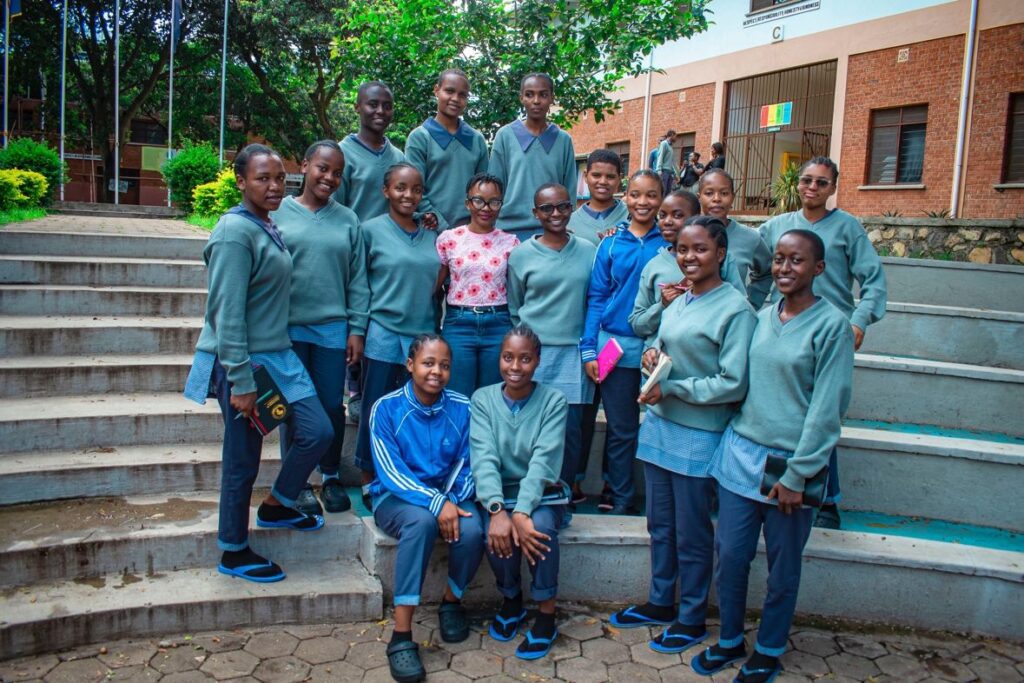
“I believe that it is crucial to focus on early education initiatives that will introduce girls to ICT and its related fields.” – Dr. Neema Mduma
She continued, “There is a need to stress on mentorship programs that will connect young girls with other women who are already breaking barriers in ICT so they can provide guidance, inspiration, and practical insights into the field. Showcasing success stories and highlighting role models from diverse backgrounds can also motivate girls to pursue ICT careers.”
GHANAIAN WOMEN IN TECH BEGIN.
As we celebrate the Girls in ICT Day, a group of 18 female dominated Ghanaian students are building a robot towards this year’s VEX Robotics World Championship that will be held in the United States of America. These pre tertiary students have developed an easy to play mobile game and a collaborative robot which they will unveil at this year’s competition.

A group of 18 female dominated Ghanaian students are building a robot the VEX Robotics World Championship. Photo Credit: Ghana Broadcasting Corporation.
Having won 12 medals at last year’s event, a student remarked “We have practiced and trained extensively. We have also had the opportunity to learn from past competitions and we believe Ghana will excel and perform really well. We are bringing more trophies to the country.”
Let all of Africa support these young change makers as they embark on taking steps to ignite the future of women in Tech.

Leave a Reply